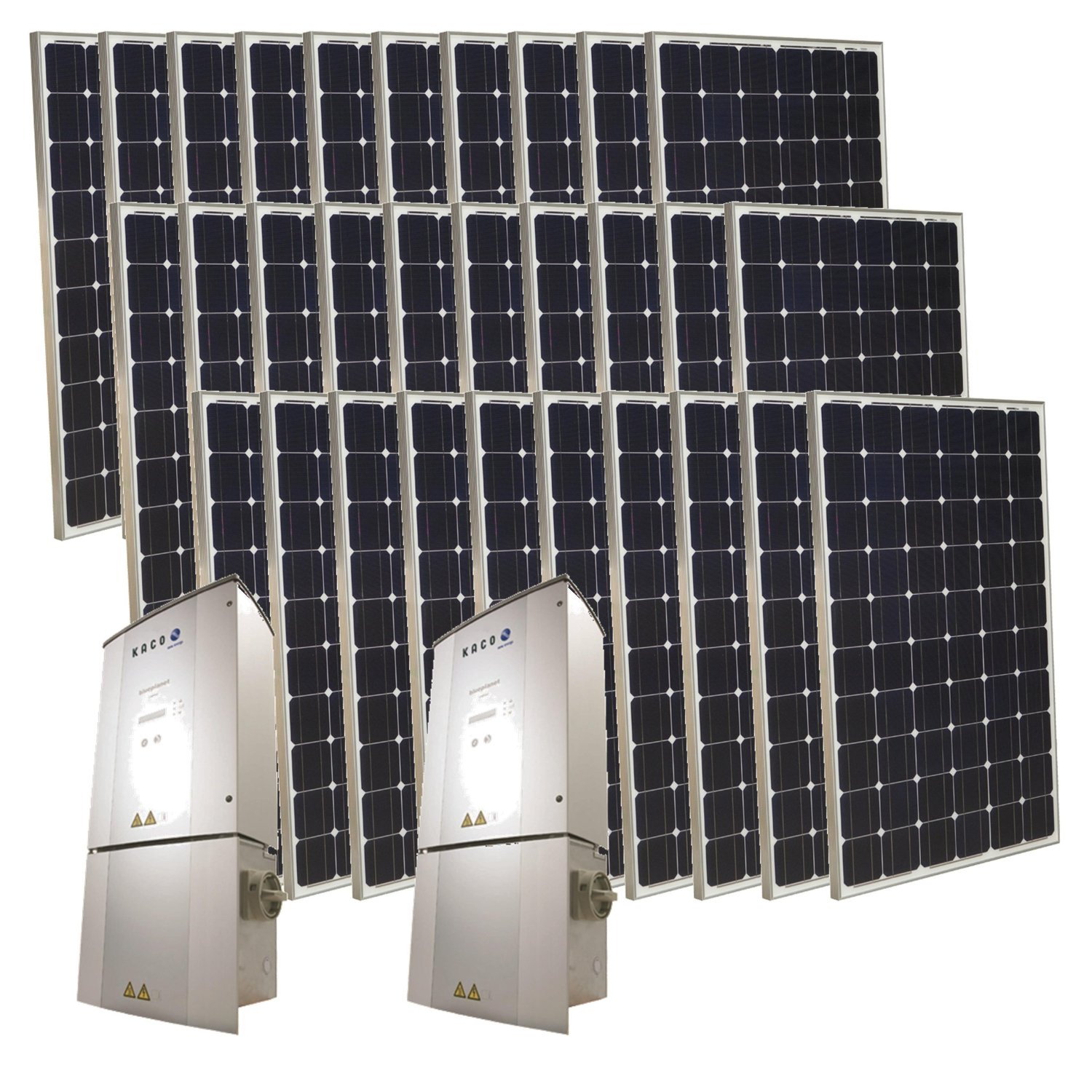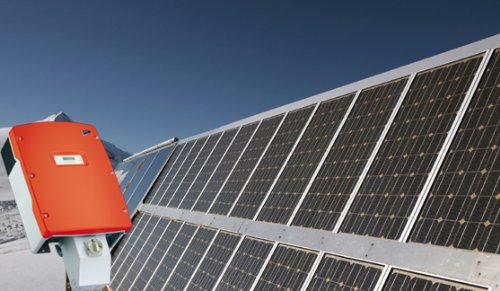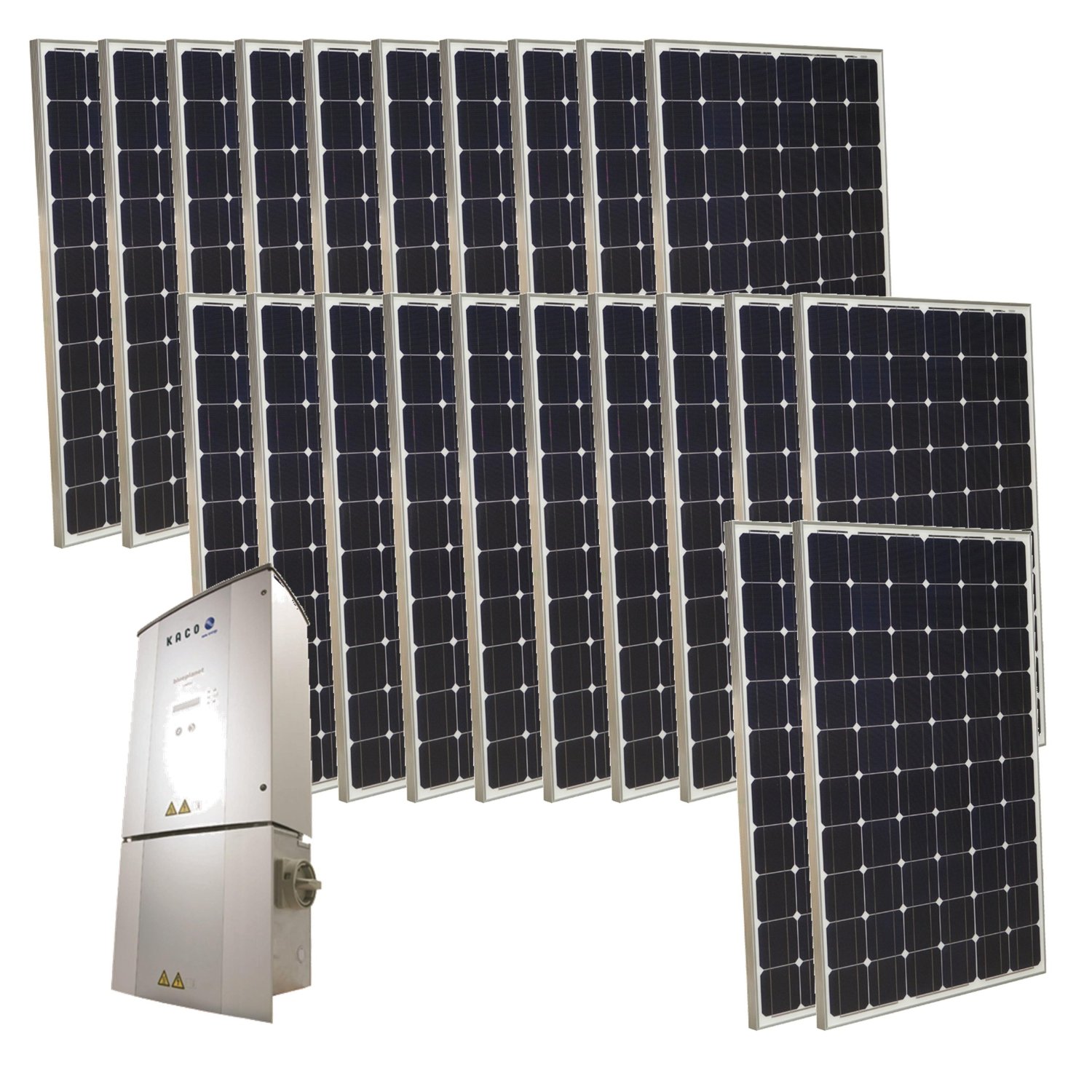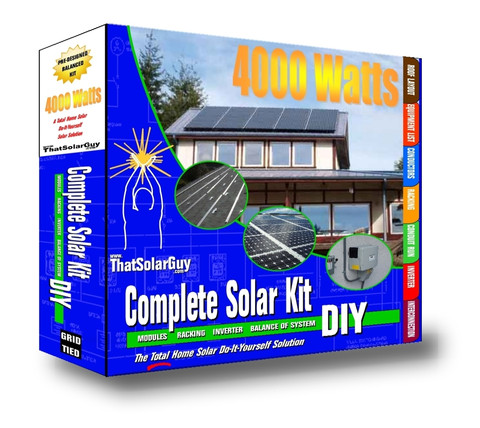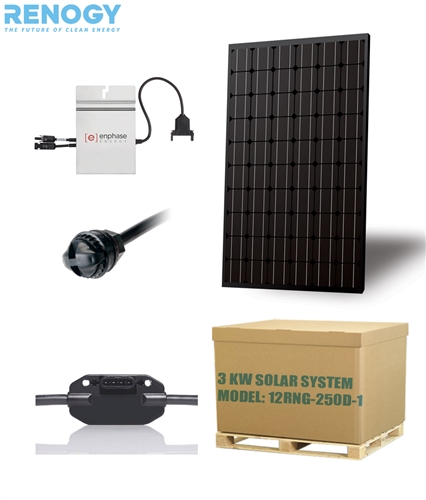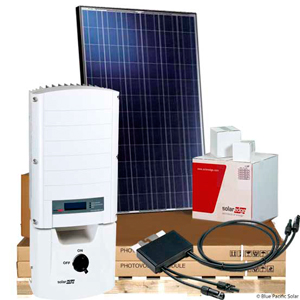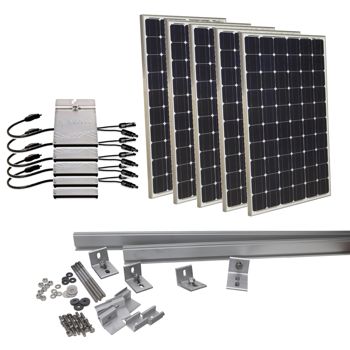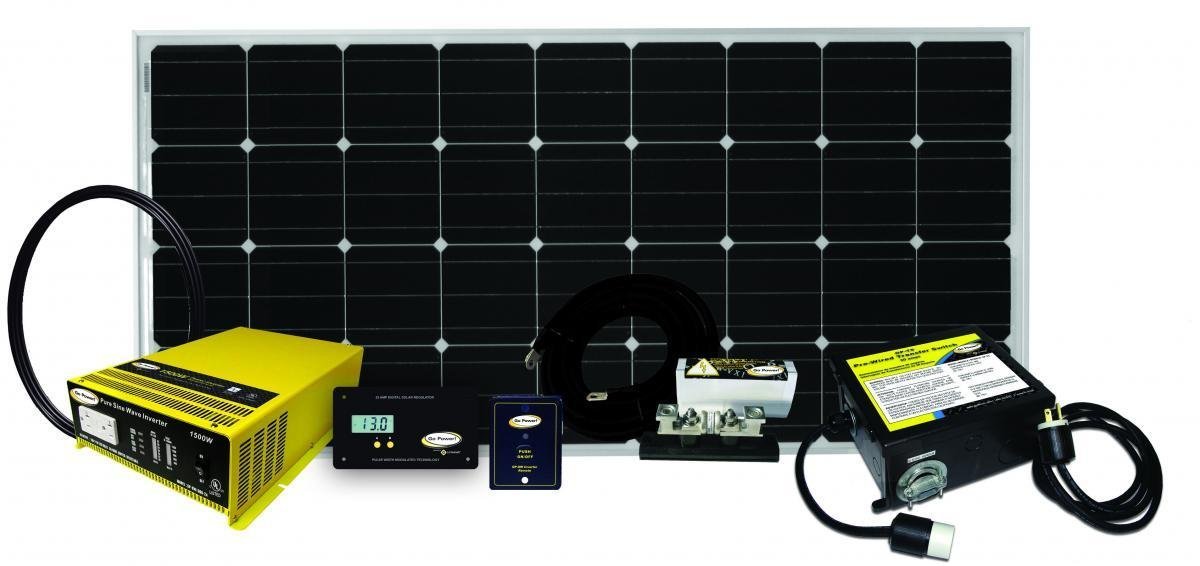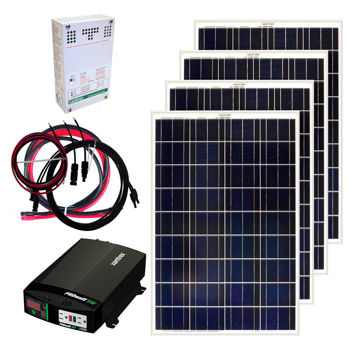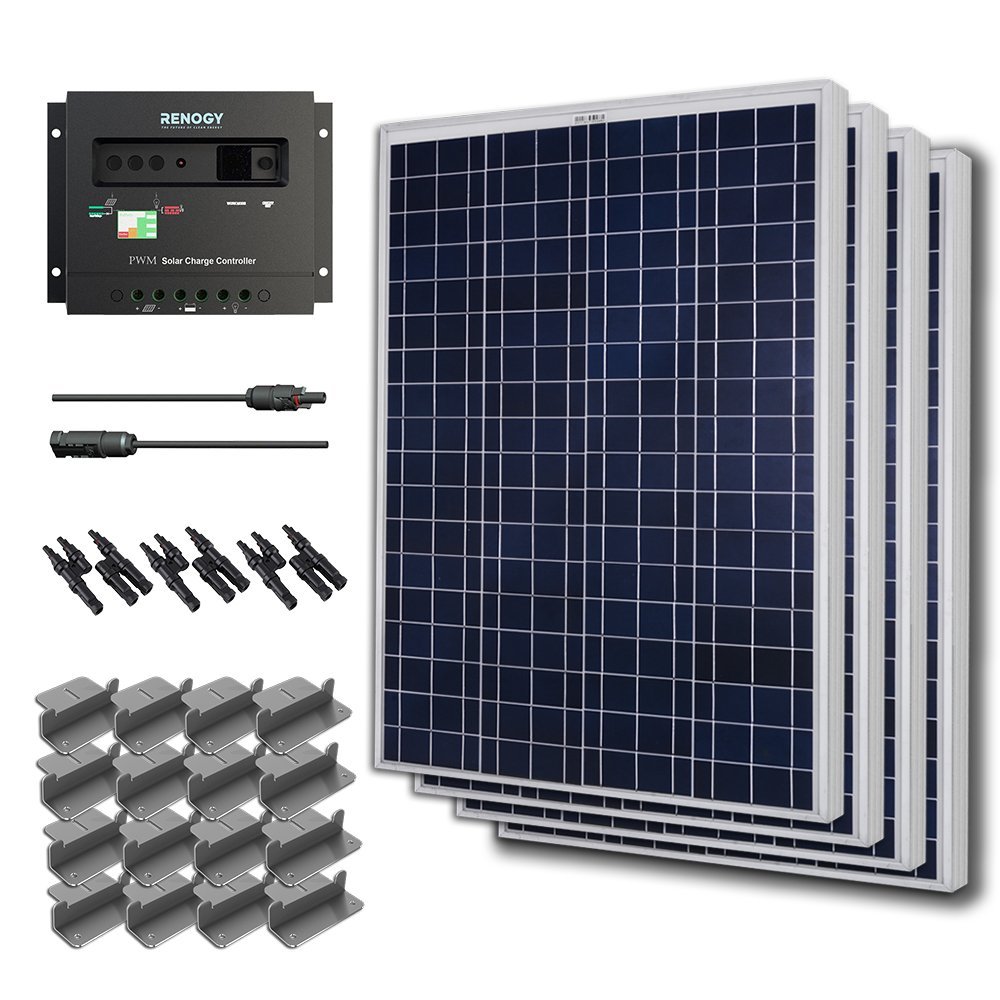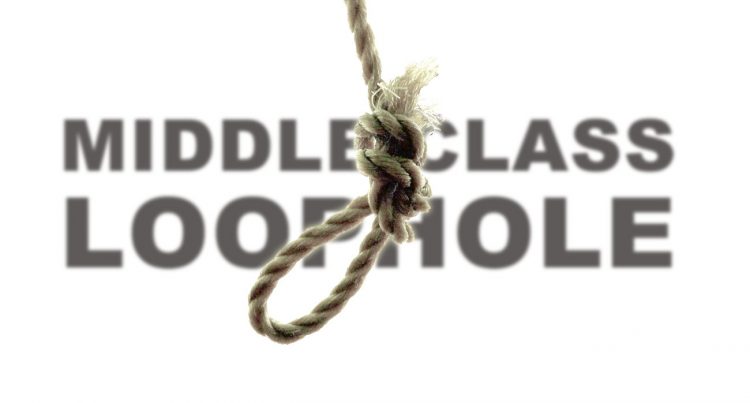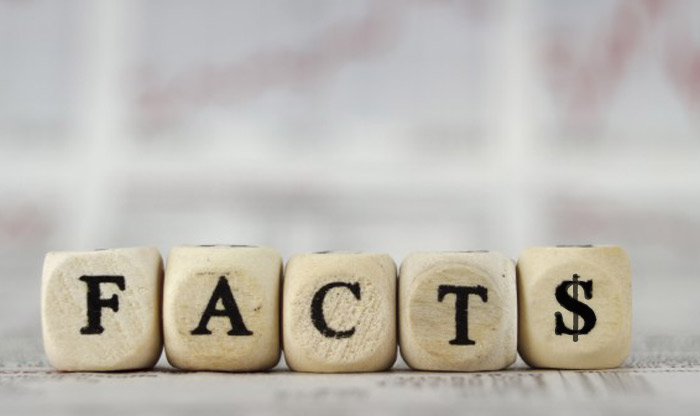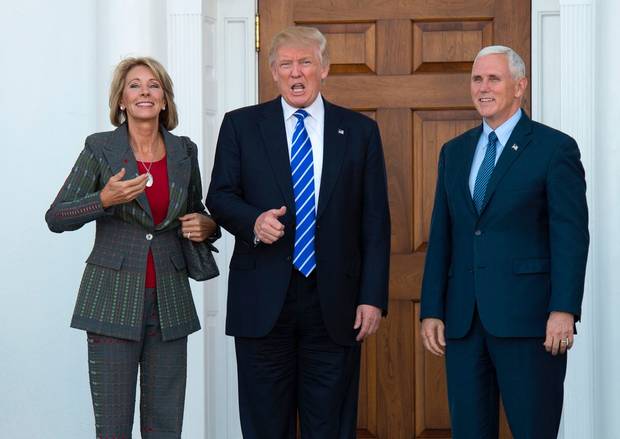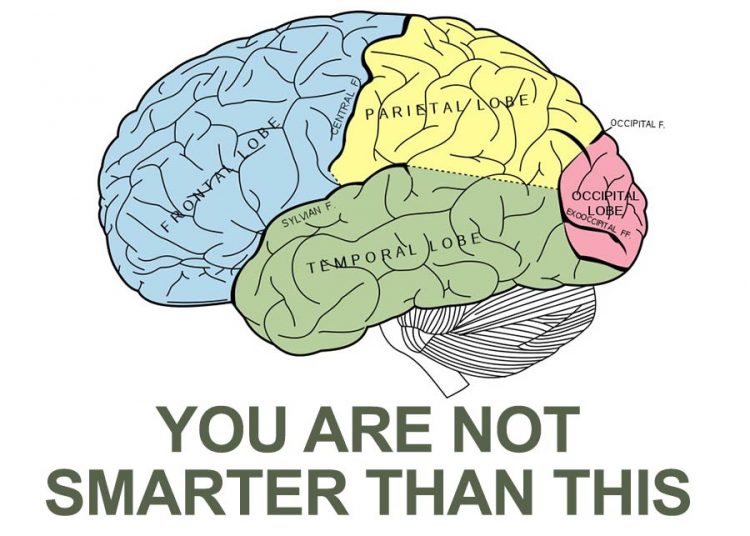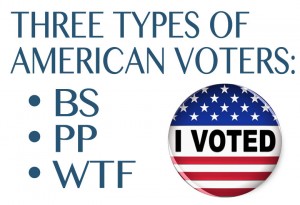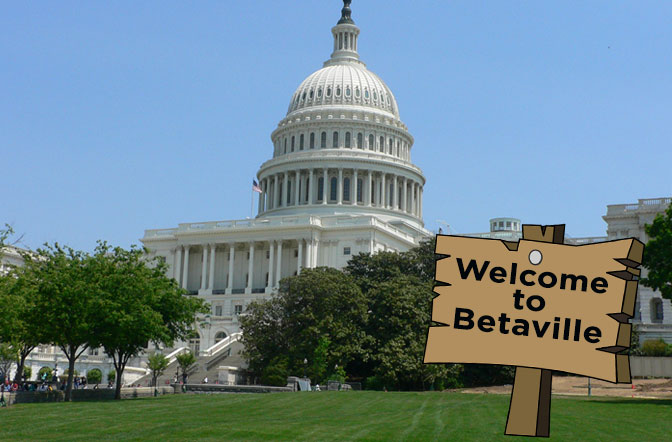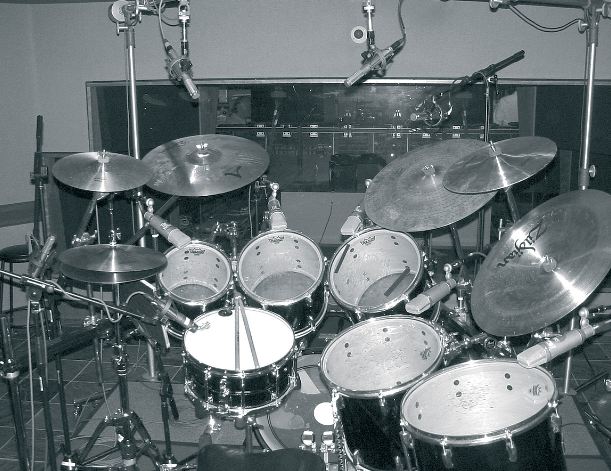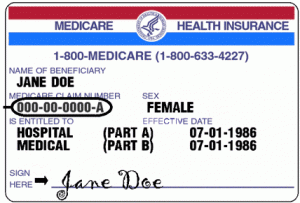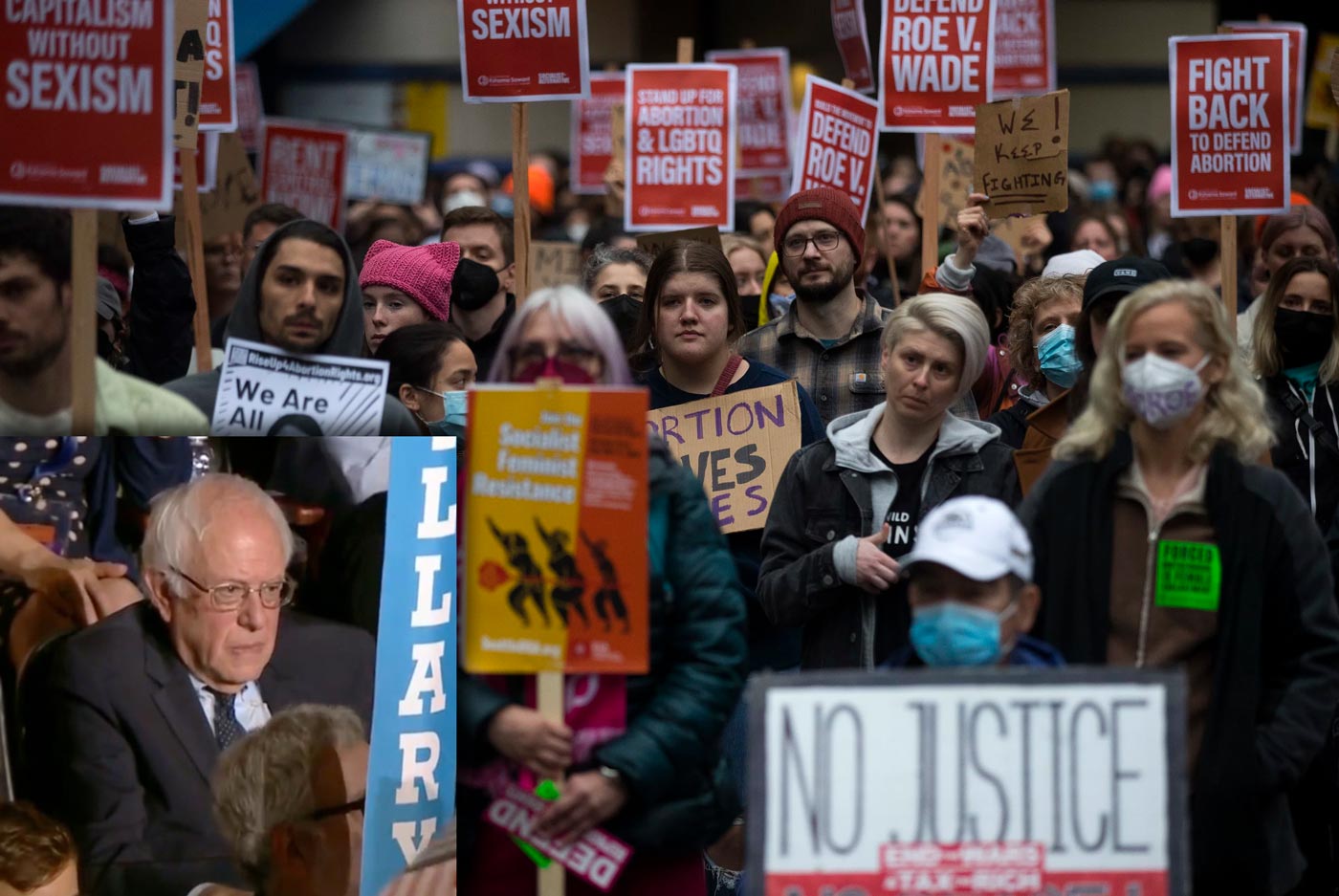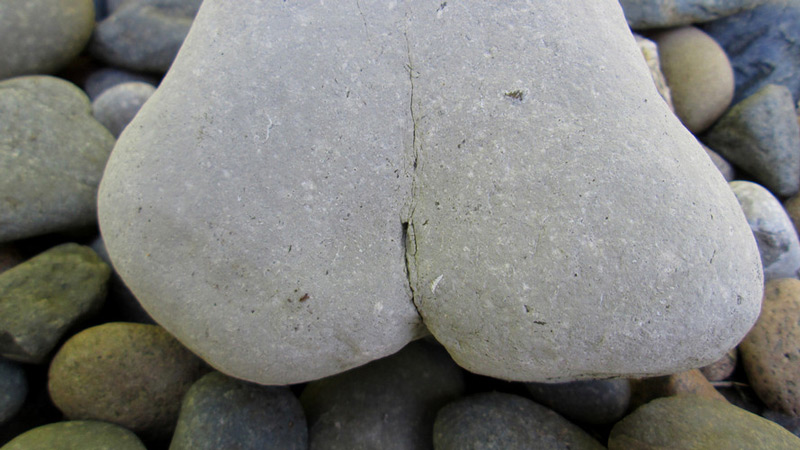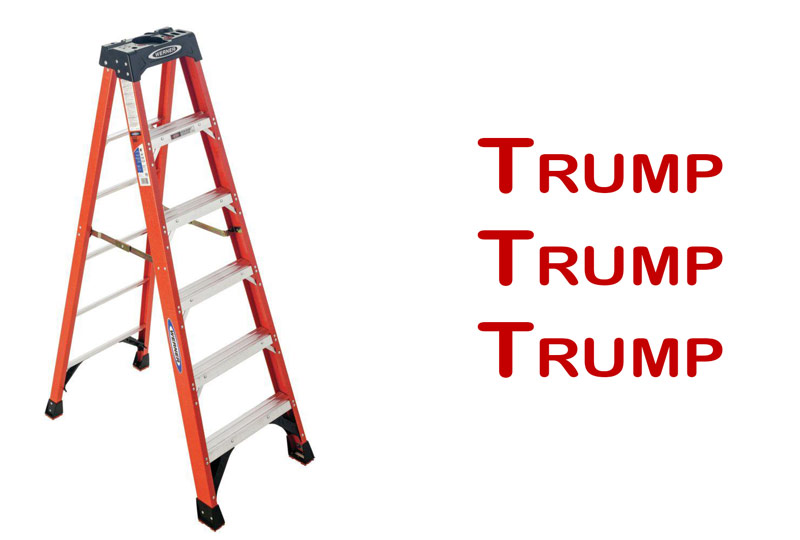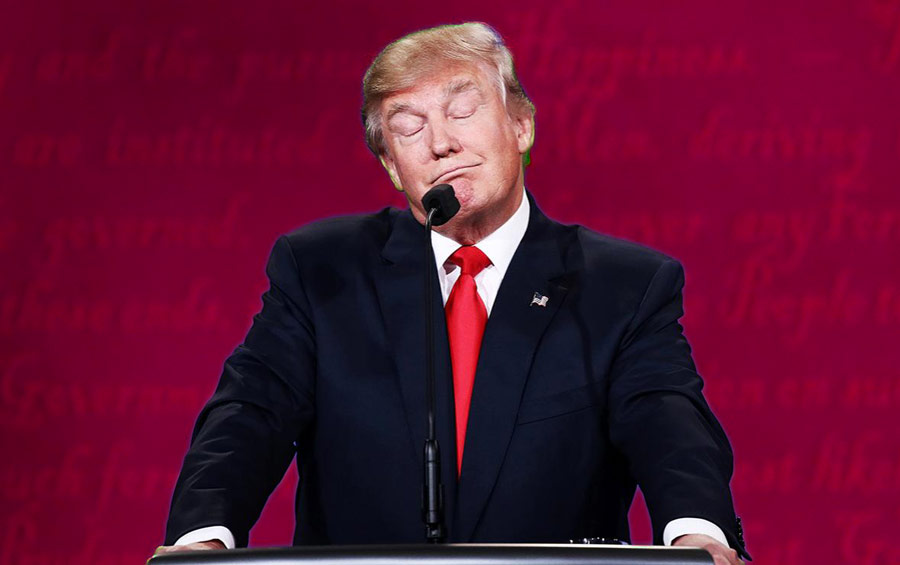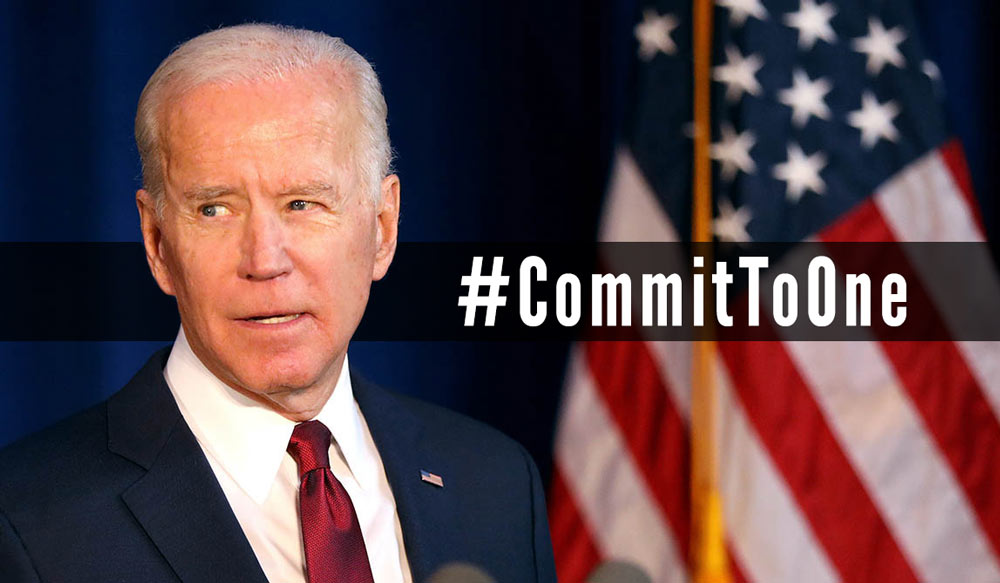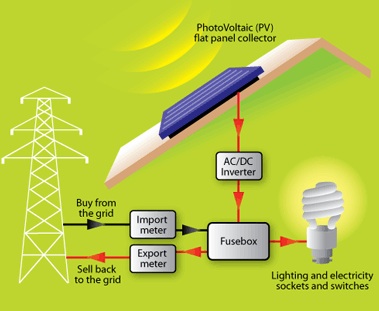
Home and RV owners can install DIY solar panel kits themselves without much work (solar panel kit prices are listed below). Moreover, virtually anyone who is willing to lease solar panels can have them installed professionally for no cost. The first step to get solar panels on your home, though, is to make sure installing them actually saves you money on electricity. Not all homes are a good fit for solar, leasing or buying solar panels. The amount of money you can save with solar panels (and in turn, what solar installation companies who lease them can make) depends on: location, home energy usage, energy cost, size of the system you install.
Solar Panels: DIY Solar Panel Kits Prices
Walk into any HomeDepot or even Costco these days and you can pick up a residential solar panel kit for a reasonable price. Recently, you can even buy complete home solar panel installation kits online from 400 watts up to 7500 watts and higher. (If you are a do it yorself sort of person, don’t forget your solar panel installation permits! These are grid tie-in systems, so you need a little coordination to complete the installation.)
DIY Solar Panels: Kits Over 1750 watts, Price Over $3500
A 1750 watt solar power system is about the minimum you’d want to consider for a grid tie-in for your home. Even that small of a system might be pushing it insofar as getting back the money you invested in energy cost savings. However, if you plan on expanding and using it as a solar starter kit, then it’s a good starting point, then you can add more panels whenever you can.
DIY Solar Panels: Kits Under 1750 watts, Price Less Than $3500
Solar panel systems that are less than 1750 tend to not be grid tie-in, but rather smaller off grid and/or charging systems. They might include an inverter with regular a couple A/C sockets, or other DC ports for charging batteries and devices. These are great for RV or trailers, back-up power sources, etc. These sort of smaller solar panel kits for RVs are a great addition to your gear list. With the solar kits that are off-grid and have built in A/C sockets you can charge an iPod or iPhone, play music on a small stereo, or watch your favorite TV show.
Complete Solar Panel Systems for Home Installation (Professionally Installed).
If you don’t want to install your own home solar power kit, then leasing solar panels for a home has become a popular option that’s getting less expensive, and as energy costs increase, so do your electricity bill savings.
The contracts can vary, but the homeowner can get a good deal like zero down and low payments by sharing (giving) any surplus to the solar panel company, especially if the home is an ideal local to install solar panels. There are sometimes some hidden costs, however, that you should look for if you want to buy or lease a solar panel system.
- Cost of installation: labor, mounting parts, and wiring. When buying solar panels, people tend to look only at the panels themselves rather than the entire system. That’s like buying an engine, but not the rest of the car.
- Permit to install solar panels. Unfortunately, you can’t just plug the output of a solar panel into a socket and have it get back into the grid. There is a process and hook-ups that have to be approved first by your city or county.
- Cost of the inverter, which is the device that converts the power from DC (direct current) to AC (alternating current) so that the power created by the solar panels can be put into the power grid.
- Ongoing maintenance. While solar panels don’t have any moving parts, they still need to be monitored and checked out on a regular basis. If you have a local company that installs solar panels, there’s a 100% chance they offer that service as well.
Lease or Buy a Solar Panel System?
Leasing vs. buying solar panels, in large part, depends on the size of the system you want to install. If you’re looking for a system that generates a lot of power, a large one, then the purchase price will be very high, so will the maintenance. Leasing a large solar panel system is like choosing to lease a Mercedes rather than buy a Mazda… but in this case, the Mazda pays you back the money you spent on it.
When you lease a residential solar panel system it’s just like leasing an apartment: the company who owns it is responsible for (most of) the maintenance. If you plan to stay in your home for a long time, over 20-30 years, that savings could really add up.
Companies that install solar panels give wide ranges of the cost to buy and install a system for a home. You’ll see estimates anywhere between $10,000 – $40,000 (but don’t forget about large federal tax credits for homes with solar panels). Part of that is because solar panel companies are doing pretty well leasing their systems, and would like their customers to do that (what company wouldn’t want a 30-year customer with increasing energy costs as opposed to a one-time purchase?). On the other hand there are companies who sell solar panels, who appropriately have a lot of arguments against leasing.
How Many Solar Panels Does a Home Need?
From HowStuffWorks: “A typical solar panel produces a maximum of 120 watts, or 0.12 kW, in a day [source: Richards]. For a 7.5-kW setup, then, you’d need about 62 panels. A single panel might measure about 56 by 25 inches (142 by 64 centimeters), so a 62-panel solar setup would measure roughly 700 square feet (65 square meters).”
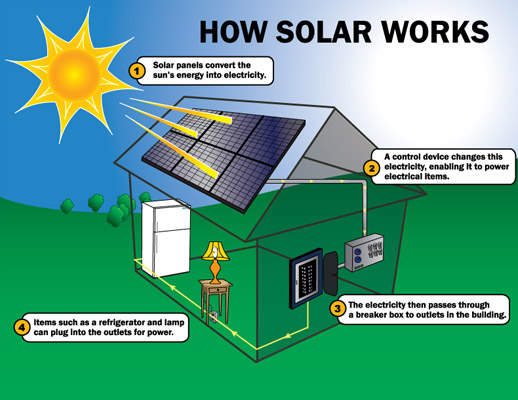
Most of us don’t want to have to understand kilowatts, or inverters, or anything about the power grid. Nor is it likely that most are going to climb on their room tomorrow with a measuring tape and pencil. You can, however, do some things to guess. First, we all have a pretty good idea of how much sun our home gets and where to install solar panels. Second, a simple look at your utility bill will give you an idea of your home’s average power consumption. It’s perfectly OK to guess from there to give you a general idea of how many solar panels would fit, and if the amount of electricity they would create is enough to partially offset your electricity bill, or eliminate it all together.
In the end, it is a good idea to consult with someone who installs solar panels for a living. By the time this article publishes, there will probably be another advance in solar panel technology, which makes it necessary to speak with someone who can do the hard calculations with you. Regardless if you plan to buy or lease solar panels, whoever installs them will be making money, so they all tend to give free consultations. There’s no harm in at least asking; you might be pleasantly surprised by how much you can save.
